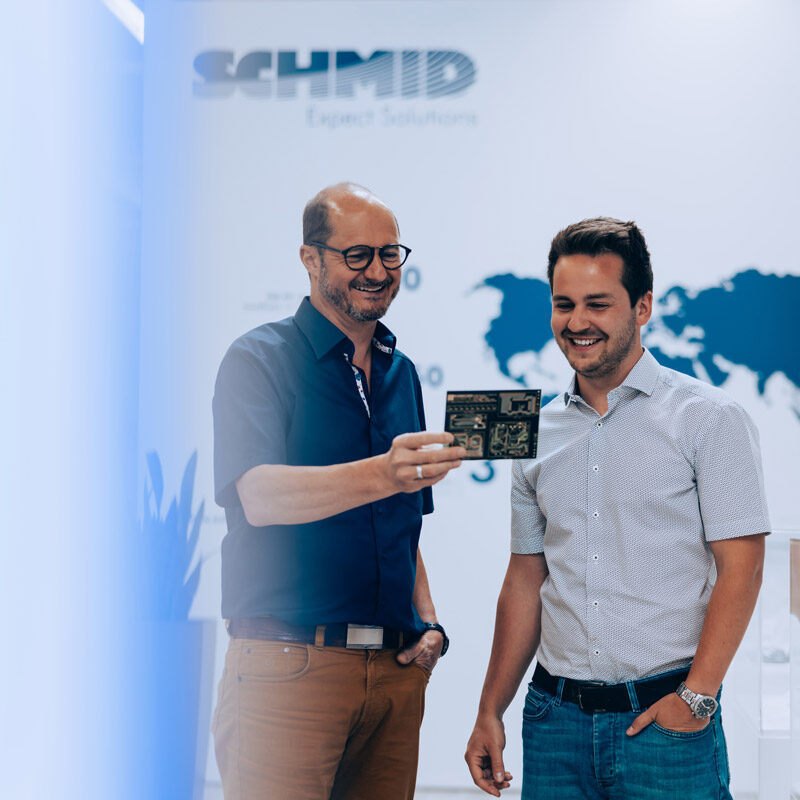Careers
Start shaping your future
You want to be part of a global company that is shaping the future and driving technology? Preferably in a team that fosters creativity, fast decision-making and talent with the mission of finding solutions for our customers to turn opportunities into reality. Then SCHMID is the right place for you. Join us and create change for a greener and sustainable future.

Jobs
Find your place
within the SCHMID Team
Below you find a list of our open jobs.

Apply now!
Here you can filter your desired department:
Apprenticeship & Dual Study
Great careers start with SCHMID
Start your professional life with an exciting and well-founded apprenticeship. Join Team SCHMID and apply for one of our apprenticeships or for a dual study program. We are already looking forward to your application.
Here you will find our brochure for apprenticeship (in German language).











